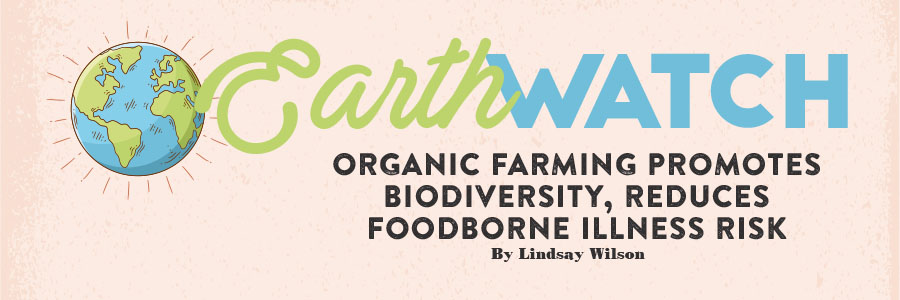


Sign-up for {N}power to get exclusive discounts, newsletters, members-only features, and more!
 Denver - Design District - Alameda and Broadway
Denver - Design District - Alameda and Broadway
368 S Broadway
Denver, CO 80209
United States
 Preferred Store:
Select a Store
Preferred Store:
Select a Store

The Centers for Disease Control (CDC) estimates that each year more than nine million Americans get sick from foodborne illnesses, leading to around 56,000 hospitalizations and 1,350 deaths.1 Fresh fruits and vegetables are often the culprits, but the pathogens most often are traced back to animal sources, specifically to their manure.

The largest sources of animal manure in this country are concentrated animal feeding operations (CAFOs), where animals produce an estimated one billion tons of waste annually, which, according to some estimates, is up to 20 times more than the amount humans produce each year. And while human waste is treated in wastewater treatment plants, CAFO manure is not. This untreated manure can make its way to crops via direct application to fields, storm runoff , through contamination of irrigation water, and even via microparticles carried in the air.2 3 4
Animal waste from CAFOs is clearly a problem, but some food-safety experts argue that greater biodiversity on farms is to blame for increasing the risk of foodborne illness. They say that supporting wildlife populations increases the likelihood of exposure to pathogen-carrying animal manures, contributing to a greater risk for produce contamination and foodborne illness. This has led to the development of food safety and land management practices that encourage the removal of natural habitats like hedgerows, ponds, and non-crop vegetation, which is thought to discourage wildlife visitors and minimize farm exposure to manure-derived pathogens.
However, new research found that reducing biodiversity, which is especially prevalent among conventional farms, may actually worsen food-safety risks. The study, published in 2019, concluded that reduced biodiversity leads to decreased populations of dung beetles and soil microbes, two important components of a healthy ecosystem that reduce potential contamination by breaking down manure and suppressing foodborne pathogens.5
In the analysis, researchers at Washington State University conducted a survey of beetle and soil bacterial communities among 70 commercial broccoli fields along the U.S. West Coast. These farms included both organic and conventional farms. Results of the survey revealed that, in comparison to conventional farms, organic farming practices encouraged greater biodiversity and increased populations of dung beetles, thus increasing the rate of manure removal and reducing E.coli contamination. Additionally, due to regenerative practices that restore soil health, organic farms had an increased percentage of organic matter in the soil, which correlated with higher soil bacterial populations and diversity. This microbial diversity also suppressed pathogenic bacteria. Overall, the study provides evidence to question current agricultural food safety guidelines, which through the reduction of on-farm biodiversity may actually increase food safety risks. Moreover, it justifies the need for organic farming practices that encourage biodiversity and robust ecosystems, which decrease human pathogens and minimize the risk of foodborne illness.
The primary sources of foodborne illness-causing pathogens are soil amendments and irrigation water contaminated with livestock manure.6 In addition to being a potential source of pathogens like E. coli, this manure can also contain growth hormones, antibiotics (which is leading to the rise of antibiotic-resistant superbugs), and chemicals.7 CAFOs are the largest sources of livestock manure in the country, creating an estimated billion tons of (untreated) waste each year. Avoid buying meat raised in CAFOs and instead opt for 100 percent grassfed, pasture-raised meat and dairy products. Additionally, buy organic produce to support agricultural methods that promote biodiversity and soil health, factors that reduce the risk of foodborne illness, and support your health and the health of the planet!



Sign-up for {N}power to get exclusive discounts, newsletters, members-only features, and more!
